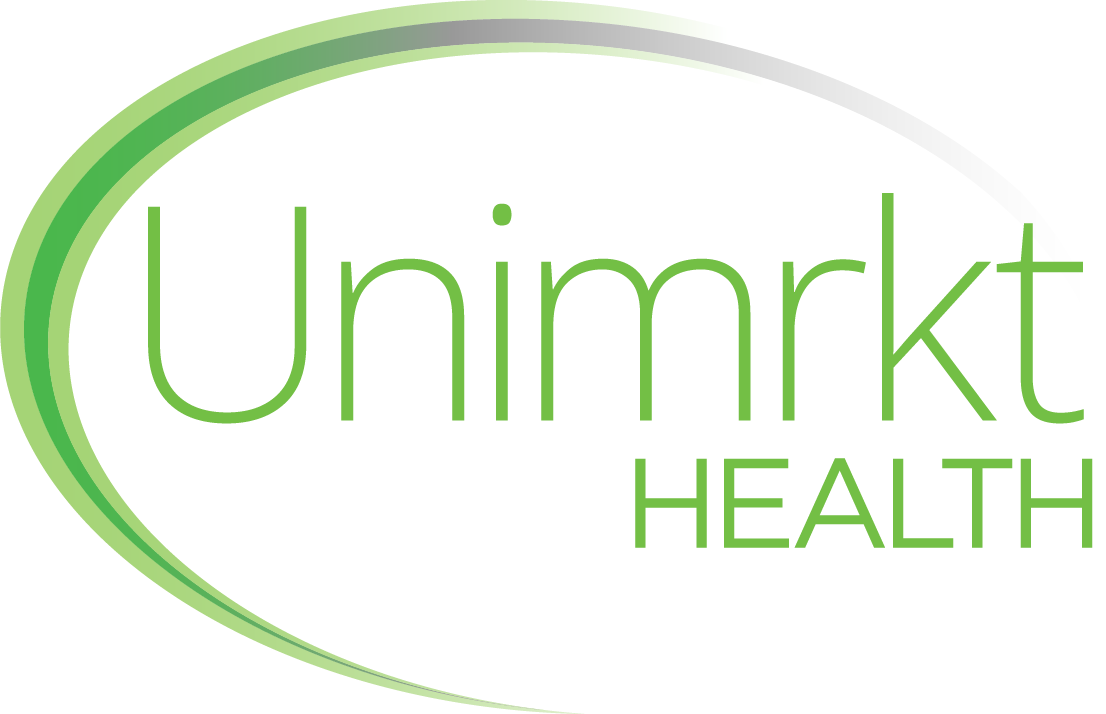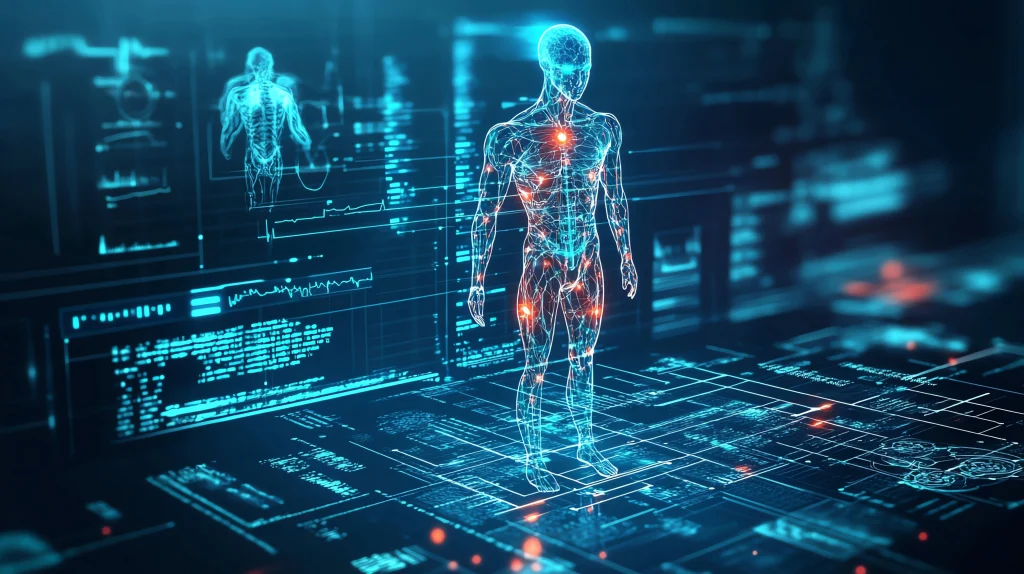Opportunity in Waiting: Future of AI/ML in the Medical Market
- Unimrkt Healthcare » Blog » Opportunity in Waiting: Future of AI/ML in the Medical Market
In recent years, the healthcare industry has witnessed a significant transformation with the integration of artificial intelligence (AI) and machine learning (ML) technologies. Today we will discuss the future of AI/ML in the medical market. We will find those emerging opportunities that your company can venture into. By the end of the blog, you will be armed with a foolproof map to unleash your full potential, in terms of clinical efficiency and patient outcomes, with AI/ML at center stage. We will also find out how medical market research surveys can help you adopt new technologies. Let’s get started.
Emerging Opportunities For AI/ML in the Medical Market
Let’s identify the emerging opportunities for AI and ML in healthcare:
Real-time Clinical Documentation
Real-time clinical documentation refers to the process of capturing and recording patient encounters as they happen, rather than relying on later transcription or manual entry. This approach offers several benefits. By capturing information in real-time, there is less room for errors or omissions that can occur with delayed documentation. Healthcare providers can ensure that all relevant details are accurately recorded during the patient visit. Real-time documentation helps update your patient records immediately, ensuring that the most current information is available to all members of the healthcare team. This can be crucial for providing timely and coordinated care, especially in emergencies or when patients are seen by multiple providers. To implement real-time clinical documentation, you must leverage technology like voice recognition software programs, NLP algorithms, and EHR systems. These tools can automatically transcribe spoken words into text, extract key information from conversations, and integrate documentation seamlessly into patient records.
Personalized Medicine
AI/ML take into account factors such as genetic makeup, lifestyle, and environmental influences to help you deliver personalized medicine. Yes, you can tailor medical treatment based on the individual characteristics of each patient. AI/ML algorithms can analyze large volumes of patient data. Data is the lifeline of your healthcare empire. If you can tap it, you will be able to not only enhance your operations but also improve patient outcomes significantly. These datasets can include:
- Genetic information
- Medical history
- Lab results
- Lifestyle factors
Once you have the data, only then you can feed algorithms with it. In return, they will help you identify patterns and correlations that may not be apparent to human observers. This analysis can reveal insights into disease mechanisms, treatment responses, and risk factors.
Treatment Planning
Based on the analysis of patient data, AI/ML algorithms can assist healthcare providers in developing personalized treatment plans that are tailored to the specific needs and characteristics of each patient. This may include selecting the most appropriate medications, dosages, and treatment modalities based on predicted efficacy and safety profiles.
Clinical Decision Support
AI/ML systems can integrate with clinical decision support systems to provide recommendations for personalized treatment options based on evidence-based guidelines and best practices. These recommendations can help healthcare providers make more informed decisions and optimize patient outcomes. Clinical decision support (CDS) systems are tools designed to assist healthcare providers in making evidence-based decisions about patient care. AI/ML can enhance clinical decision support by:
- Real-time Guidance: AI/ML algorithms can analyze patient data in real time and provide healthcare providers with timely recommendations and alerts based on clinical guidelines, best practices, and patient-specific factors. This can help providers make more informed decisions and improve patient safety.
- Diagnostic Support: AI/ML can assist in diagnosing medical conditions by analyzing symptoms, medical history, lab results, and imaging studies. These scribes can help healthcare providers consider a broader range of diagnostic possibilities and identify potential red flags or uncommon presentations.
- Treatment Optimization: AI/ML can recommend optimal treatment options based on patient characteristics, disease severity, comorbidities, and treatment preferences. These recommendations can help healthcare providers select the most effective and appropriate interventions for each patient.
Remote Patient Monitoring
Remote patient monitoring (RPM) involves using technology to collect and transmit patient data from outside traditional healthcare settings, such as patients’ homes or mobile devices. AI/ML scribes can facilitate remote patient monitoring by:
- Data Capture: AI/ML algorithms can capture and analyze data from various sources, including wearable devices, mobile applications, and IoT sensors. This data may include vital signs, activity levels, medication adherence, symptom reports, and other relevant health metrics.
- Continuous Monitoring: AI/ML can monitor patients continuously and alert healthcare providers to changes or abnormalities that may indicate deterioration or the need for intervention. This continuous monitoring can enable early detection of health issues and proactive management of chronic conditions.
- Predictive Analytics: AI/ML algorithms can use historical patient data to predict future health outcomes and identify patients at high risk of adverse events. These predictions can guide risk stratification, resource allocation, and targeted interventions to prevent complications and improve outcomes.
Enhancing Clinical Efficiency and Patient Outcomes
AI/ML can enhance the efficiency and effectiveness of telemedicine visits by providing real-time transcription and documentation support during virtual consultations. It can enable seamless communication, data exchange, and collaboration between healthcare providers and patients, regardless of geographical location. Here’s how it can contribute to enhanced clinical efficiency and improved patient outcomes:
- Time Savings: By automating medical documentation tasks, AI/ML scribes can save healthcare providers valuable time, allowing them to focus more on patient care and less on administrative work.
- Accuracy and Consistency: AI/ML can improve the accuracy and consistency of medical documentation by reducing transcription errors and standardizing documentation practices.
- Workflow Optimization: AI/ML frameworks can streamline clinical workflows by automating repetitive tasks, such as data entry and documentation, thereby improving workflow efficiency and reducing administrative burden.
- Clinical Insights: By analyzing large volumes of clinical data, AI/ML systems can generate valuable insights and recommendations to support clinical decision-making and personalized medicine, ultimately improving patient outcomes.
Final Word
The future of AI/ML in the medical market holds immense potential for transforming healthcare delivery and improving patient care. By leveraging AI and ML technologies, healthcare companies can streamline their entire medical documentation process and enhance clinical efficiency. However, the successful continued integration of AI/ML into your clinical practice requires strategic data. Pro tip: medical market research surveys can help you significantly with that. This is why it’s so crucial to work with a qualified medical technology market research firm with proven experience. If you are looking for someone with an impeccable track record of conducting medical device market research, look no further than Unimrkt Healthcare. Throughout the years, we have consistently applied scientifically validated methodologies for research in the health industry, ensuring the delivery of actionable data through meticulous targeting of respondents. To learn more about how we can help you with your medical market research surveys, call +91-124-424-5210, +91-9870-377-557, or email sales@unimrkthealth.com. You may also fill out our contact form, and our team of experts will assist you as soon as possible.
Recent Posts
- 10 Medical Online Survey Mistakes You Must Leave Behind in 2025
- How Qualitative Healthcare Research Can Accelerate Ethical AI Adoption
- Trust as a Growth Strategy: What Healthcare Leaders Can Learn From Business Market Analysis
- Mapping the Healthcare Value Chain: A Market Research Perspective
- Decoding Emotional Triggers in Treatment Choices: A Qualitative Approach
Archives
Quick Enquiry
Customer Service, We Make it Better
Related Posts:
Let's Connect
Please, fill in the form to get in touch!



